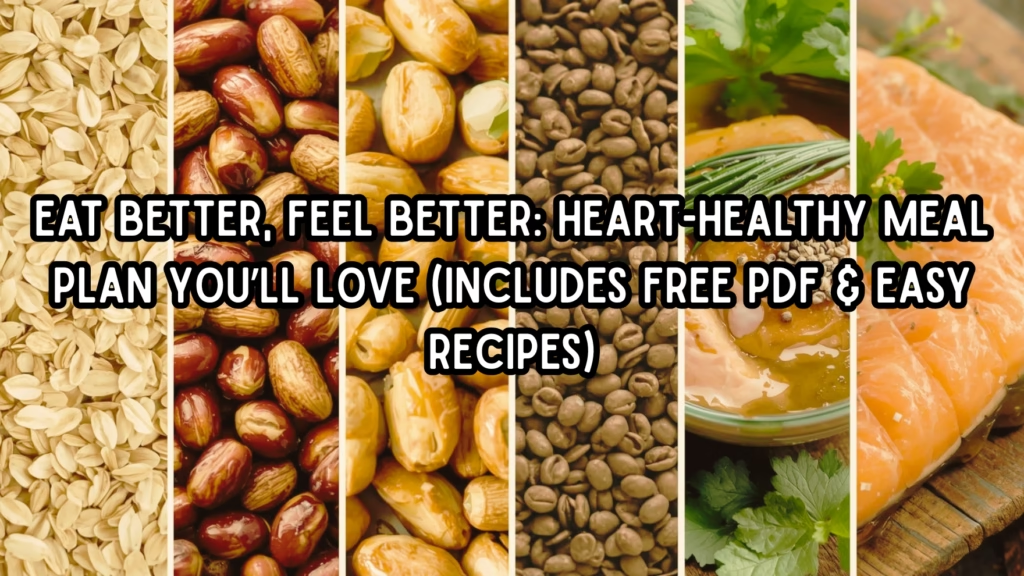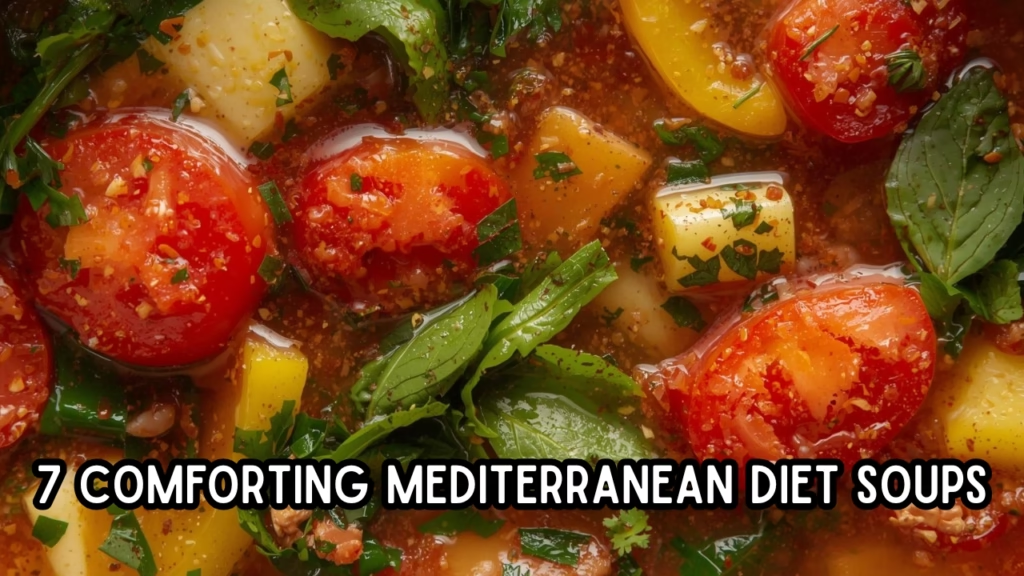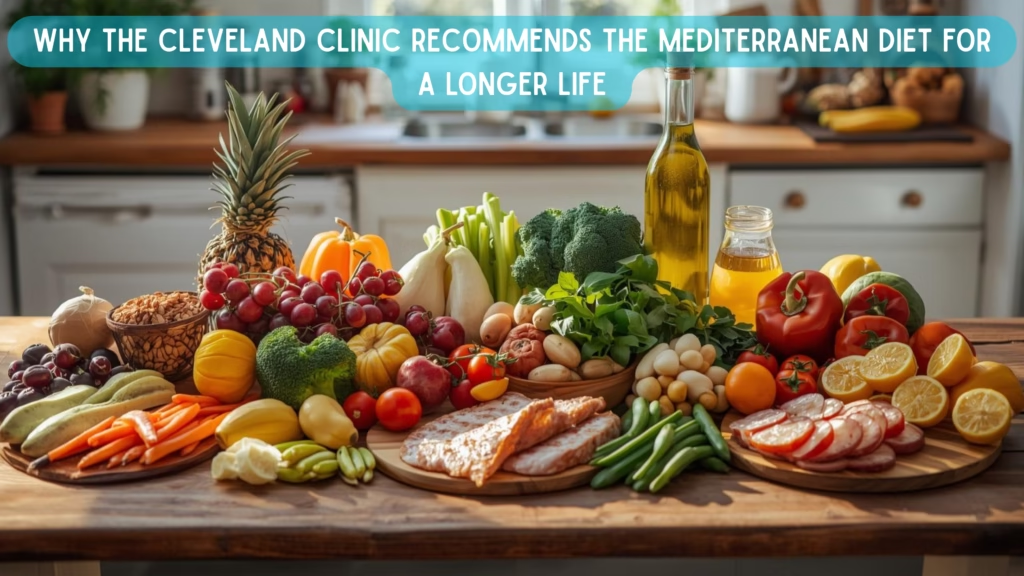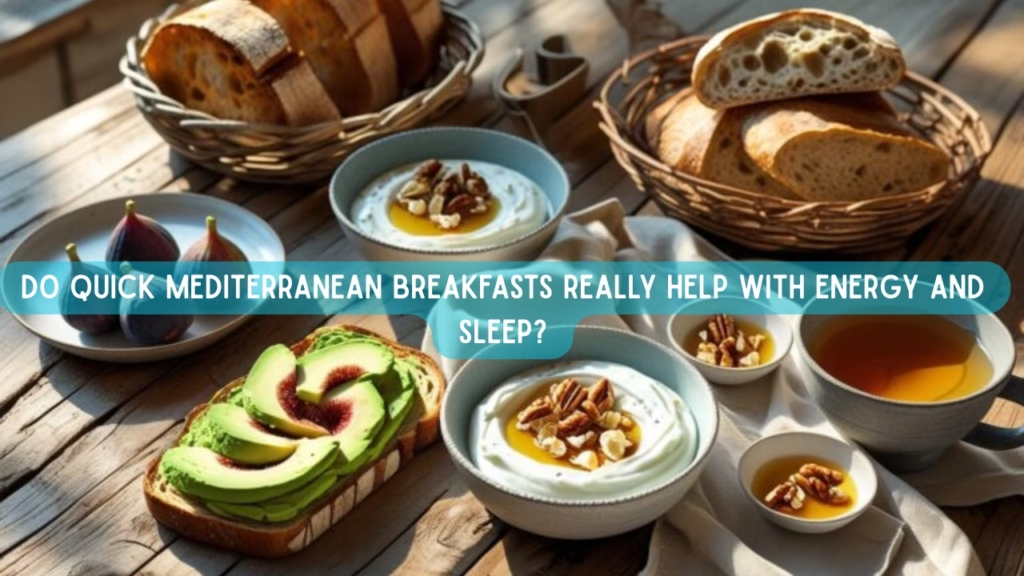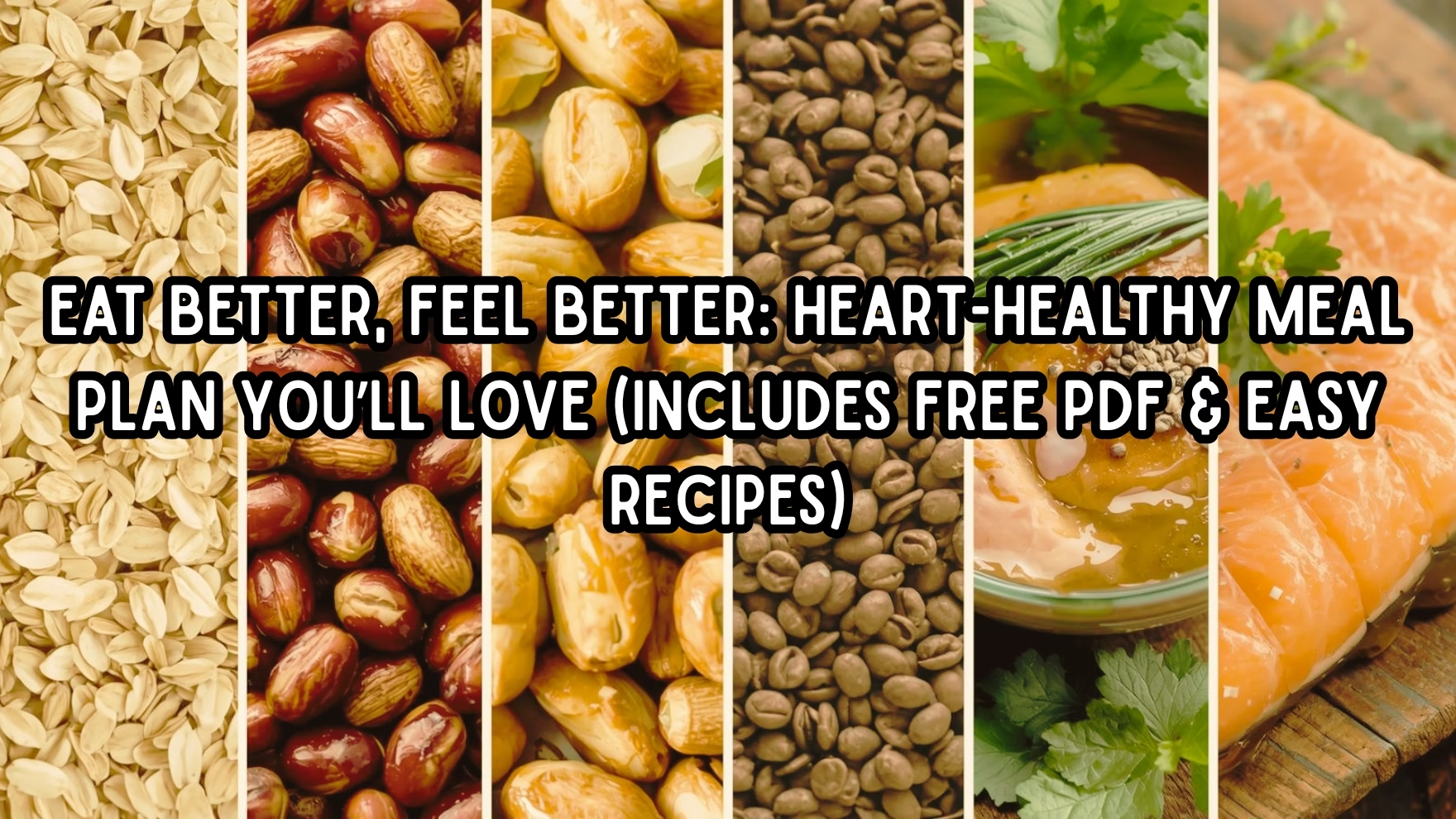
This Heart-Healthy Meal Plan is designed to give you real results — better cholesterol, more energy, and meals you’ll actually enjoy.
Instead of fad diets, we’re talking about sustainable eating patterns that lower cholesterol, improve blood pressure, reduce inflammation, and boost energy — all while being delicious and realistic.
This article breaks down the science of heart-healthy foods, gives you meal ideas for every time of day, and shows you practical cooking tips you can use as your weekly guide.
If you’re interested in exploring other evidence-based approaches to heart health, our Mediterranean diet for weight loss plan offers another scientifically proven pathway that supports cardiovascular wellness while helping you reach your weight goals.
Why Heart-Healthy Eating Matters
A consistent Heart-Healthy Meal Plan can lower LDL cholesterol and reduce your long-term risk of heart disease.
Here are the key reasons why a Heart-Healthy Meal Plan works:
- Lowers LDL (bad cholesterol): Foods like oats, beans, olive oil, and nuts reduce artery-clogging plaque.
- Raises HDL (good cholesterol): Fatty fish, chia seeds, and avocados help clean out the bad stuff.
- Regulates blood pressure: Potassium-rich foods like spinach, bananas, and sweet potatoes help balance sodium levels.
- Reduces inflammation: Berries, green tea, garlic, and turmeric calm the body’s inflammatory response — a hidden driver of heart disease.
Small swaps create big changes. For example:
- Replace a pastry breakfast with oatmeal and berries.
- Swap fried chicken for grilled salmon with veggies.
- Use olive oil instead of butter.
These simple substitutions can significantly improve your heart health over time. If you’re looking for more protein-focused options that also support cardiovascular wellness, our 7-day high-protein, low-carb meal plan includes additional swaps and meal ideas tailored for heart health.

What a Heart-Healthy Meal Plan Looks Like
Here’s how a balanced day of heart-smart meals could look. Mix and match these ideas for variety throughout your week.
Breakfast Recipes for a Heart-Healthy Meal Plan
- Oatmeal with blueberries and walnuts – soluble fiber lowers cholesterol.
- Avocado toast with whole grain bread – rich in monounsaturated fats.
- Spinach smoothie with banana, flaxseeds, and almond milk – potassium + omega-3s.
- Vegetable omelet with olive oil – lean protein + healthy fat combo.
Each of these lunch ideas fits perfectly into a Heart-Healthy Meal Plan.
- Grilled salmon with quinoa and roasted veggies – omega-3 powerhouse.
- Chickpea and olive oil salad – protein and fiber.
- Mediterranean lentil soup – filling, nutrient-dense, and fiber-rich.
- Turkey & spinach wrap – lighter than red meat but packed with flavor.
This dinner selection is crafted for anyone following a Heart-Healthy Diet.
- Baked cod with sweet potatoes and kale – lean, nutrient-packed combo.
- Tofu stir-fry with broccoli and sesame seeds – plant-based and heart-protective.
- Grilled chicken with farro and arugula – fiber-rich whole grain meets lean protein.
- Stuffed bell peppers with quinoa and black beans – high-fiber, high-antioxidant option.
Snacks
- A handful of almonds or walnuts.
- Apple slices with almond butter.
- Low-fat Greek yogurt with chia seeds.
- Carrot sticks with hummus.
- Green tea or hibiscus tea (shown to lower blood pressure).
These nutrient-dense snacks keep you satisfied between meals while supporting heart health. For those mindful of their grocery budget, our 14-day budget-friendly meal plan features affordable options that deliver the same heart-smart nutrition without straining your wallet.
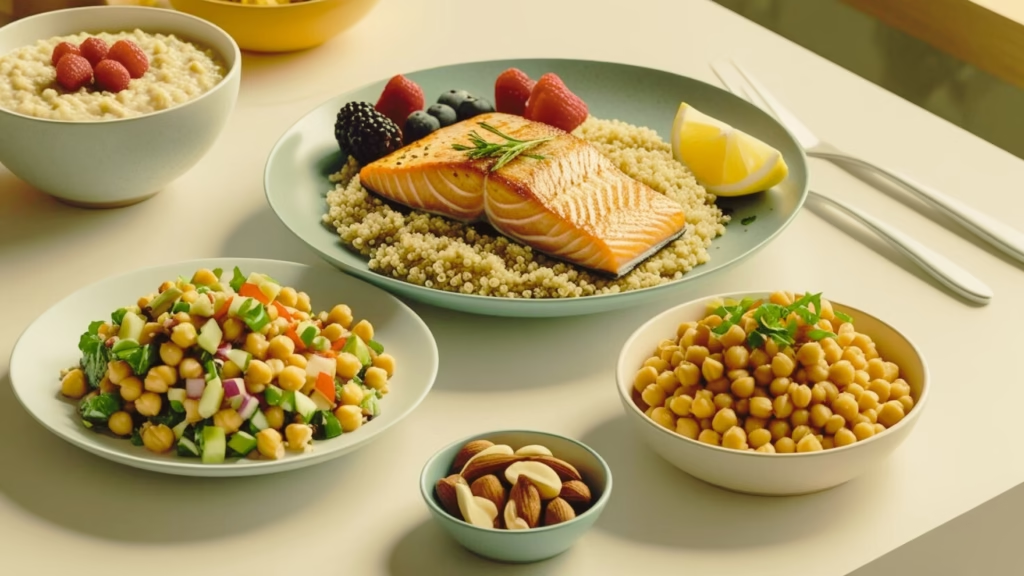
Practical Tips for Sticking to Heart-Healthy Eating
- Batch cook proteins and grains on Sundays. It makes weekday meals effortless.
- Season with herbs, garlic, and lemon instead of heavy salt.
- Swap red meat for fish or plant proteins at least 3–4 times per week.
- Add greens to every plate – spinach, kale, or arugula.
- Snack wisely – nuts, fruit, yogurt instead of chips or sweets.
- Practice mindful eating – chew slowly, savor meals, and reduce stress.
These strategies work especially well when you plan ahead. If you’re interested in plant-based approaches, our plant-based meal plan offers additional prep ideas for heart health.

Nutrition Breakdown
Typical heart-healthy diets follow these ratios:
- 45–55% carbs from whole grains, fruits, and vegetables.
- 20–25% protein from fish, poultry, legumes, tofu, or eggs.
- 25–30% healthy fats from olive oil, nuts, avocado, and seeds.
- <1,500–2,000 mg sodium daily to control blood pressure.
- 25–30 grams of fiber daily to improve digestion and cholesterol.
Benefits:
- Reduces risk of heart disease, stroke, and hypertension.
- Supports weight management.
- Enhances energy and blood sugar balance.
- Promotes long-term vitality and longevity.
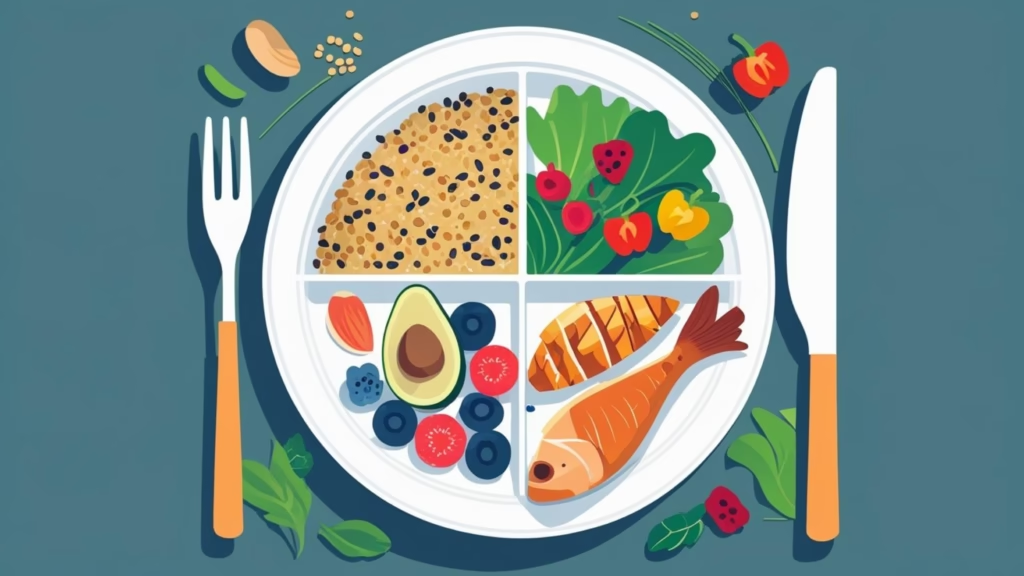
Taking care of your heart doesn’t have to mean giving up delicious food. A Heart-Healthy Meal Plan is about making smart swaps, eating more plants, and enjoying meals rich in fiber, healthy fats, and antioxidants.
Start small — swap one meal today and build toward your full Heart-Healthy Meal Plan this week.

SOURCES
We carefully draw from trusted, evidence-backed sources—including peer-reviewed studies, respected academic institutions, and authoritative health organizations—to ensure the accuracy and reliability of every insight we share.
American Heart Association (AHA) – Official Heart-Healthy Diet and Lifestyle Guidelines
National Institutes of Health (NIH) – Cholesterol, Blood Pressure, and Heart Health Research
Harvard T.H. Chan School of Public Health – The Nutrition Source: Mediterranean Diet & Heart Health
Centers for Disease Control and Prevention (CDC) – Heart Disease Prevention and Nutrition Insights
Mayo Clinic – Expert Advice on Heart-Healthy Foods and Lifestyle
You Might Also Like
How to Make Homemade Pita Bread. A Simple Step-by-Step Guide
Pita Bread Making Pita bread represents one of the oldest forms of bread still commonly…
7 Comforting Mediterranean Diet Soups Made with Simple, Healthy Ingredients
Mediterranean diet soups represent a cornerstone of one of the world’s healthiest eating patterns, combining…
I’m from Bhutan. Here’s How I Combined Local Foods with the Mediterranean Diet for Better Energy
Growing up in Phuntsholing, I never imagined that the traditional Bhutanese foods my grandmother cooked…
Mediterranean Diet Whole Grains: The Complete Guide to Heart Health and Longevity
Mediterranean Diet Whole Grains: The Complete Guide to Heart Health and Longevity Mediterranean diet whole…
How to Combine Asian Spices with the Mediterranean Diet for Maximum Flavor and Health Benefits
Asian spices with the Mediterranean diet create an extraordinary culinary fusion that doesn’t just taste…
Cleveland Clinic Mediterranean Diet: Why It’s Best for a Longer Life
Why the Cleveland Clinic Recommends the Mediterranean Diet for a Longer Life Cleveland Clinic Mediterranean…

Hello! I’m Sangay Choda, the creator of Mediterranean Diet Choice.
I’m not a doctor or licensed dietitian — I’m a health enthusiast who has spent years exploring the Mediterranean lifestyle and its proven benefits for long-term wellness, balance, and longevity.
My interest in this way of living began with a simple goal: to understand how everyday food choices can protect our hearts, improve energy, and support a happier life. Over time, I have researched and curated information from trusted medical and nutritional authorities, such as:
Harvard T.H. Chan School of Public Health
Mayo Clinic
World Health Organization (WHO)
National Institutes of Health (NIH) and more
I take complex, research-backed insights from these sources and transform them into easy-to-read, practical guides that anyone can apply — especially those looking to live healthier without restrictive diets or complicated plans.
While I do not offer medical advice, every article on this website is created with care, transparency, and a commitment to evidence-based information. My mission is to help readers make informed choices for a balanced, Mediterranean-inspired lifestyle.
Disclaimer: The content on this site is for informational and educational purposes only and should not be used as a substitute for professional medical advice. Always consult a qualified healthcare provider before making significant health or dietary changes. For more details, please visit our Disclaimer page.
For additional information about this website and its purpose, visit our About page. You can also review our Terms & Conditions to understand your rights and responsibilities when using this site.
Thank you for visiting Mediterranean Diet Choice.If you have questions, suggestions, or wish to collaborate, feel free to reach out at contact@mdietchoice.com or contact us.

